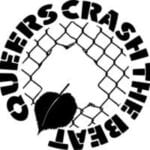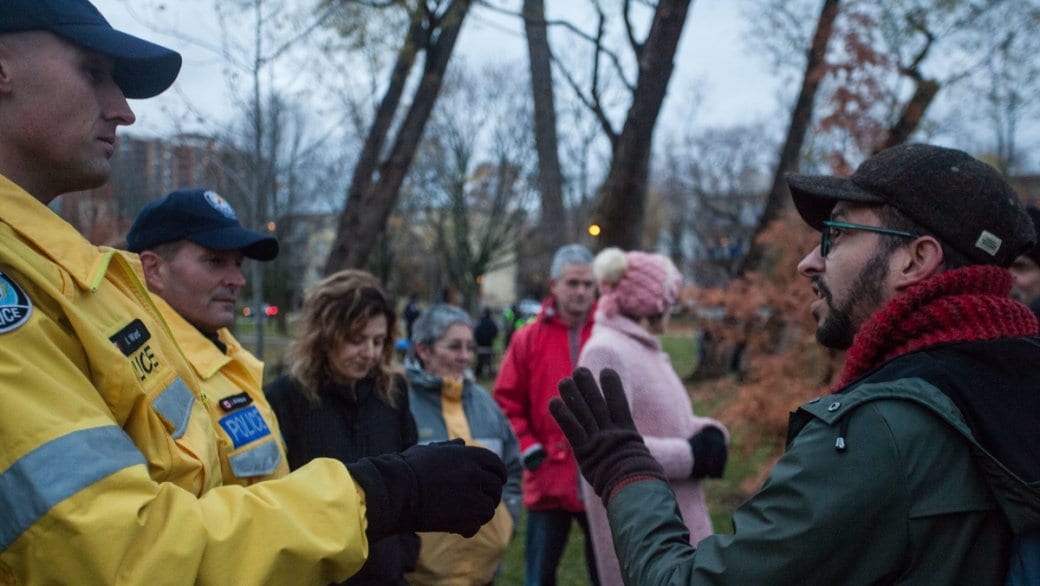Xtra Spark profiles current activism in our communities. This article stems from a partnership between Xtra Spark and Queers Crash the Beat in which we are supporting their activism with targeted media coverage that gives our readership pathways to take action.
Despite the fact that 95 percent of the people charged were men in the six-week undercover crackdown on public sex and other forms of allegedly “lewd” behaviour in Etobicoke’s Marie Curtis Park, Toronto police insist they weren’t targeting any particular community or sexual orientation.
Instead, the police want us to believe they’ve changed since their days of cracking down on gay sex in both public and private spaces in Toronto, a history they sought to distance themselves from just a few months ago with their apology for the 1981 bathhouse raids.
Yet, Project Marie contains a telltale sign of an anti-queer police operation: the disproportionate enforcement operation in response to the suspicion of minor bylaw infractions or criminal offences rooted in puritan ideas of “vice.”
The bathhouse raids played out in much the same way, where a suspicion of prostitution and lewd acts triggered the disproportionate response of coordinated police raids over several months and mass arrests. In similar fashion, the Pussy Palace raid of 2000, where women were strip-searched by male cops, was triggered by the mere suspicion that liquor license regulations were not being followed (it turns out they were).
This same pattern has recurred in Project Marie — the suspicion of minor bylaw offences (the one criminal charge notwithstanding) have been used to launch a disproportionate enforcement response. It is in the gap between the seriousness of the offences and the scale of the police response that the underlying homophobic motivations of the project can be gleaned. Queers have been through this before.
It didn’t have to be this way. Community conflicts over the “proper” use of public space in another Toronto park set a precedent for a more inclusive way of handling community conflicts.
When some residents of Trinity Bellwoods complained about excessive drinking in that park, an inclusive community meeting was held to discuss the issue. This response recognized that an enforcement-based response would be out of step with a segment of the community’s use of the space. In practice, if not in law, this approach placed all community users’ claims to the public space on equal footing.
In the case of Project Marie, the police ignored the precedent set at Trinity Bellwoods and instead responded with an enforcement operation intended to delegitimize one segment of the community’s use of the park.
Any benefit of the doubt that may have been extended to police evaporated once it became clear how their post-sting community “Walk the Beat” event on Nov 19 was being framed.
According to the event description posted on City Councillor Jim Tovey’s website, police promised to address the “issues plaguing Marie Curtis Park.” But public sex between consenting adults is not a plague. The presence of gay men in public parks is not a plague.
What is at heart a conflict over the “proper” uses of a public park — uses that are in no way incompatible — has been framed by one side of the debate in the language of moral or bodily disease.
This language calls up the stereotype of gayness as a spreading like a disease, an old homophobic trope that we as queers will not stand for.
When Toronto police received community complaints about activities in Marie Curtis Park, they could have made a choice. They could have taken into account the history of selectively enforcing minor bylaw infractions as a pretext to policing queer sex, and sought a more community-based approach that called in all users of the park to discuss how to share the space. They even had the recent precedent of Trinity Bellwoods Park to draw upon.
Instead, they instituted an old-school queer-catching crackdown completely out of proportion to the bylaw infractions taking place.
Project Marie sends a clear message. It tells us that the same impulse that gave rise to the bathhouse raids, the Pussy Palace raid and so many other invasions of our public and private spaces in the past is still alive and well today.
It is both a moment for reflection and a moment to take action.
Xtra Spark urges our readership to take action against Project Marie. A group of activists has come together to form Queers Crash the Beat, which organized a peaceful protest against the Nov 19 police walk-through at Marie Curtis Park.
The most important thing you can do right now is like the Queers Crash the Beat Facebook page. This might seem like a small action, but doing so will allow us to build a strong online frontin response to Project Marie.
In the coming weeks, watch out for further coverage on Xtra Spark about Project Marie as the response of the queer community continues to unfold.


 Why you can trust Xtra
Why you can trust Xtra